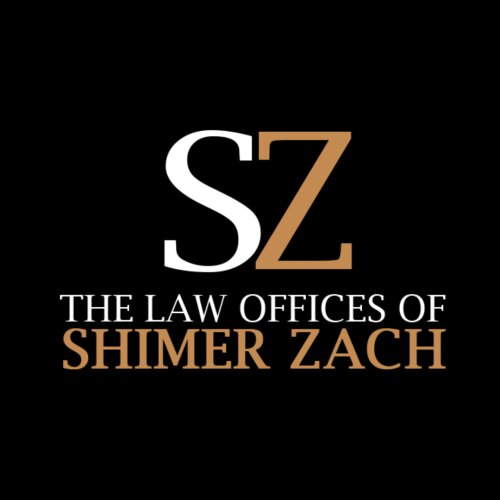Best Arrests & Searches Lawyers in Las Vegas
Share your needs with us, get contacted by law firms.
Free. Takes 2 min.
List of the best lawyers in Las Vegas, United States
About Arrests & Searches Law in Las Vegas, United States
Arrests and searches in Las Vegas are governed by the United States Constitution, the Nevada Constitution, Nevada state statutes and court rules, and local procedures in Clark County. The Fourth Amendment to the U.S. Constitution limits unreasonable searches and seizures and requires probable cause for many arrests and warrants. Nevada law and Nevada Rules of Criminal Procedure set out state-specific procedures for arrests, search warrants, evidence collection, and post-arrest proceedings. Local law enforcement agencies, including the Las Vegas Metropolitan Police Department and municipal police agencies, operate within this framework and follow local booking and detention practices in Clark County.
Why You May Need a Lawyer
If you or a loved one is facing an arrest or a search, a lawyer can protect constitutional rights, challenge unlawful evidence, and guide you through criminal procedures. Common situations where legal help is important include being arrested for a misdemeanor or felony, having your home or vehicle searched, being detained for questioning, or being charged after a search turned up evidence.
Lawyers can advise before speaking with police, represent you at bail or arraignment hearings, file motions to suppress evidence obtained in violation of the Fourth Amendment, negotiate pleas, and represent you at trial. If you cannot afford a private attorney, a public defender can provide representation for criminal charges.
Local Laws Overview
Key legal principles that apply in Las Vegas include probable cause, reasonable suspicion, consent, search warrants, and exceptions to the warrant requirement. Probable cause is required for most arrests and for magistrates to issue search warrants. Reasonable suspicion is the lower standard that allows police to stop and briefly detain someone for investigation, sometimes called a Terry stop.
Searches without a warrant are allowed in limited circumstances, including searches incident to a lawful arrest, consent searches where consent is freely given, searches of vehicles when there is probable cause, plain view seizures, and exigent circumstances such as imminent danger or risk of evidence destruction. Courts will examine whether consent was voluntary, whether an officer had lawful authority to detain or arrest, and whether any search exceeded constitutional limits.
Nevada courts interpret federal and state constitutional protections, and Nevada statutes and criminal procedure rules govern arrest warrants, bench warrants, citation releases, arraignment, bail, and pretrial procedure. Local institutions important to the arrest and search process include law enforcement agencies, Las Vegas municipal and justice courts for lower-level offenses, Clark County District Court for felonies, and the Clark County Detention Center for post-arrest custody and booking.
After an arrest, law enforcement typically processes booking information, takes fingerprints and photographs, and schedules an initial court appearance. You have the right to remain silent and the right to an attorney. If you are questioned while in custody, law enforcement must provide Miranda warnings before custodial interrogation. Evidence obtained in violation of constitutional rights may be subject to suppression in court, which can be critical to the outcome of a case.
Frequently Asked Questions
What should I do if police want to search my home in Las Vegas?
Ask to see a search warrant and read it carefully. A valid warrant should identify the place to be searched and the items to be seized. If officers do not have a warrant, do not consent to a search unless you are willing to allow it. You can calmly state that you do not consent to a search. If officers enter without a warrant, do not physically resist. Document the officers present, their badge numbers if possible, and contact an attorney as soon as you can.
When can police arrest me without a warrant?
Police can make a warrantless arrest when they have probable cause to believe you committed a felony or, in many cases, a misdemeanor in their presence. Probable cause means reasonable grounds to believe a crime occurred and that you were involved. Certain statutory schemes also authorize arrests for specific offenses without a warrant. If you are arrested, ask for an attorney and do not make statements without counsel.
Do I have to let police search my car during a traffic stop?
No, you do not have to consent to a vehicle search. However, police may search a vehicle without consent if they have probable cause to believe it contains evidence of a crime, under the automobile exception, or if there are exigent circumstances. Police may also search incident to a lawful arrest in limited circumstances. If you refuse consent, state your refusal clearly and calmly and contact a lawyer.
What are my rights when I am arrested in Las Vegas?
You have the right to remain silent and the right to an attorney. You should be read your Miranda rights before any custodial interrogation. You are entitled to know the reason for your arrest and to be taken before a magistrate or judge for an initial appearance. You may be eligible for bail or pretrial release depending on the charges and facts of the case. If you cannot afford a lawyer, you may be represented by a public defender in criminal proceedings.
What is a search warrant and how is it issued?
A search warrant is a court order authorizing law enforcement to search a specific place for specified items and to seize those items. A warrant must be supported by probable cause, typically shown by an affidavit submitted to a magistrate or judge. The warrant must describe with particularity the place to be searched and the items to be seized. Officers executing a warrant generally must knock and announce their presence before entry, unless law enforcement obtains an exception.
Can evidence from an illegal search be used against me?
Evidence obtained in violation of the Fourth Amendment may be suppressed, meaning it cannot be used in court, if the defense files a successful motion to suppress. Courts consider whether the search was reasonable, whether a warrant was required, and whether exceptions applied. An experienced criminal defense attorney can evaluate the facts, challenge unlawful searches, and seek to exclude improperly obtained evidence.
What are Miranda rights and when do they apply?
Miranda rights inform a person in custody of the right to remain silent and the right to an attorney before interrogation. Miranda warnings are required when a person is both in custody and subject to interrogation. If police fail to provide Miranda warnings under those circumstances, statements made during custodial interrogation may be excluded from prosecution. Miranda does not prevent arrest or custody itself; it governs admissibility of statements.
Can I sue for wrongful arrest or unlawful search in Las Vegas?
Yes, you may have civil remedies if your constitutional rights were violated. Claims such as false arrest, false imprisonment, or unlawful search and seizure can be pursued in civil court against responsible parties, including law enforcement officers or government entities, subject to various immunities and procedural rules. Civil claims are fact-specific and time-sensitive, so consult a civil rights or personal injury attorney promptly to evaluate your case.
What happens at my first court appearance after arrest?
The initial appearance or arraignment typically informs you of the charges, advises you of your rights, and allows you to enter a plea. The judge may decide on bail or release conditions at this early stage. You will be informed if you are entitled to appointed counsel. This hearing is procedural, but having an attorney present can help protect your rights and discuss potential release options.
How can a lawyer help me with a motion to suppress evidence?
A lawyer will investigate the circumstances of the search or arrest, review police reports and body camera footage, identify constitutional issues, and prepare legal arguments. The attorney can file a motion to suppress, present evidence and witness testimony at a suppression hearing, and argue why the court should exclude improperly obtained evidence. A successful suppression can significantly affect the prosecution's case and may lead to reduced charges or dismissal.
Additional Resources
Las Vegas Metropolitan Police Department - for information about local law enforcement procedures and records. Clark County Detention Center - for booking and custody questions. Las Vegas Justice Court and Clark County District Court - for court locations and procedures. Nevada State Bar - to find and verify attorneys and learn about legal aid options. Clark County Public Defender - for information on public defense eligibility. Nevada Legal Services and local legal aid groups - for limited-scope assistance and referrals. ACLU of Nevada - for civil liberties information. Professional criminal defense associations - for guidance on finding experienced defense counsel.
Next Steps
If you face an arrest or search, take these steps: stay calm and do not resist physically; clearly state that you wish to remain silent and that you want an attorney; do not consent to searches you are not comfortable with; document what happened as soon as you are able, including names, badge numbers, and any witnesses; preserve any evidence and notes you have; contact a criminal defense attorney promptly or request a public defender if you cannot afford one; provide your attorney with full details and any records; and follow your attorney's guidance on motions, bail, and court appearances.
This guide is for informational purposes and does not replace legal advice. Laws and procedures change, and every case is different. Consult a licensed attorney in Nevada for personalized legal advice about arrests and searches in Las Vegas.
Lawzana helps you find the best lawyers and law firms in Las Vegas through a curated and pre-screened list of qualified legal professionals. Our platform offers rankings and detailed profiles of attorneys and law firms, allowing you to compare based on practice areas, including Arrests & Searches, experience, and client feedback.
Each profile includes a description of the firm's areas of practice, client reviews, team members and partners, year of establishment, spoken languages, office locations, contact information, social media presence, and any published articles or resources. Most firms on our platform speak English and are experienced in both local and international legal matters.
Get a quote from top-rated law firms in Las Vegas, United States — quickly, securely, and without unnecessary hassle.
Disclaimer:
The information provided on this page is for general informational purposes only and does not constitute legal advice. While we strive to ensure the accuracy and relevance of the content, legal information may change over time, and interpretations of the law can vary. You should always consult with a qualified legal professional for advice specific to your situation.
We disclaim all liability for actions taken or not taken based on the content of this page. If you believe any information is incorrect or outdated, please contact us, and we will review and update it where appropriate.
















